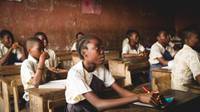
Thematic lead: Presha Ramsarup
Peer Reviewer: Stefan Thomas European Training Foundation (ETF), Khaya Tyatya (TSI), Robin Sanasee (SADC Secretariat), Volker Wedekind (Nottingham)
Lead Organisation: REAL Centre
The drastic effects of COVID-19 in technical and vocational training is slowly unfolding. As a marginalized sector in the educational and training system, it is possible that the negative effects are more greater than primary, secondary and higher education. While SADC has recognized the key role of TVET in the region’s industrialization strategy by approving a TVET Strategy in 2018, the practices in the ground indicate the TVET is not yet accorded its pronounced role. Coherent policies that are backed by sustainable funding is still wanting. Arrangements of how TVET is governed so that it is better implemented and coordinated still needs improvement. With the closure of educational institutions and the call for online learning and alternative learning models, it would be important to document what is happening to this sector.
On the other hand, TVET colleges and NGOs have utilized skills that they have learned- whether from sewing of face masks to producing hand sanitizers to welding hand wash stations to making face shields. At the moment, this is anecdotal, so it is important to systematize the collection of these innovative practices in the region.
Culling lessons from the above, it would be important to formulate recommendations on how to strengthen TVET by ensuring sustainability.
|
|
|